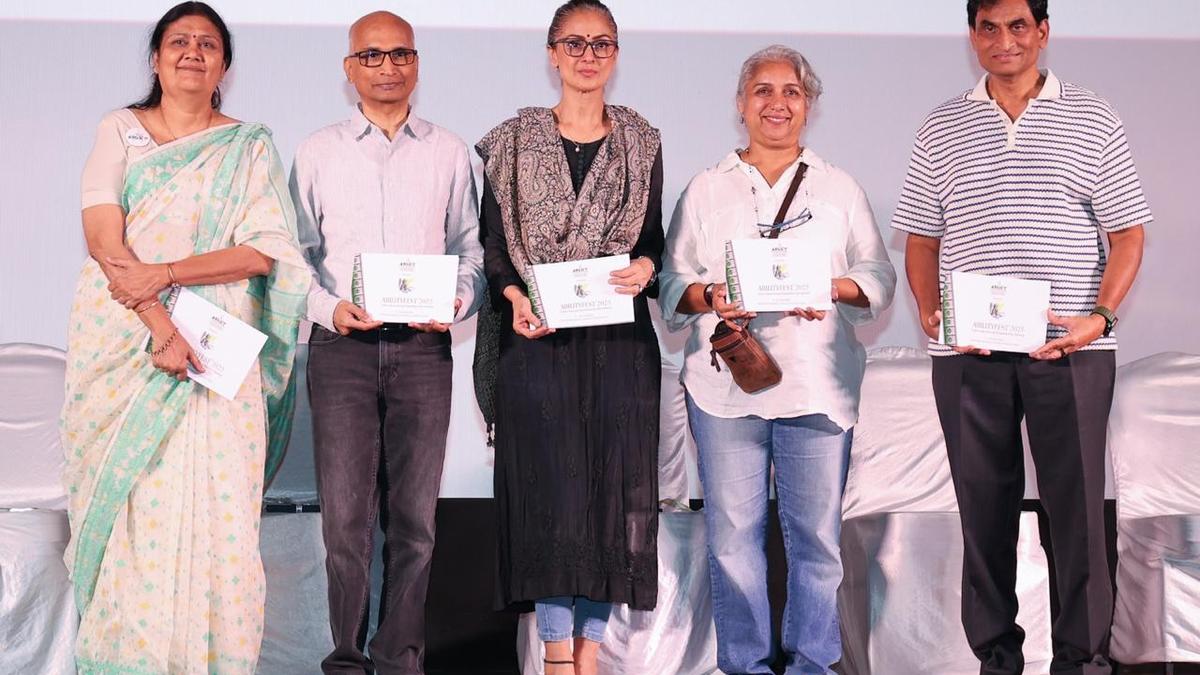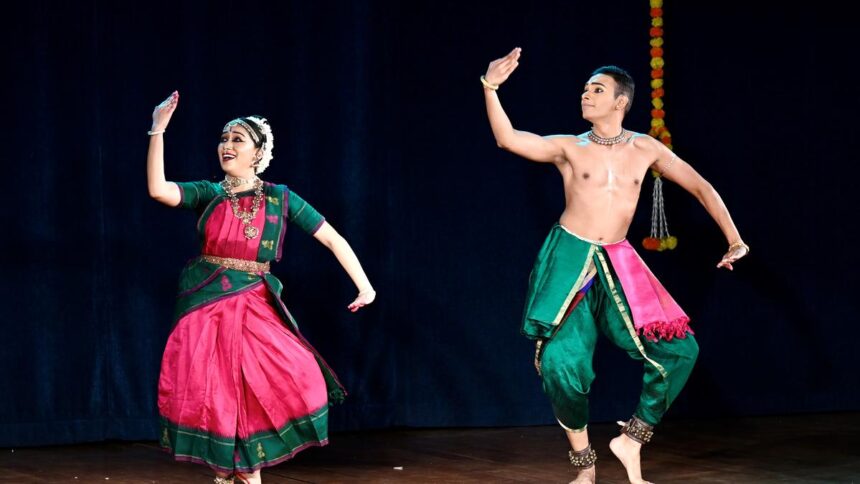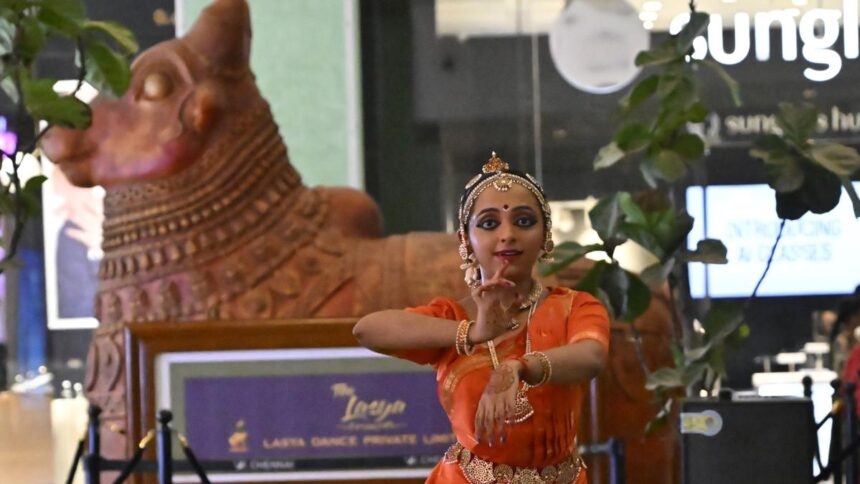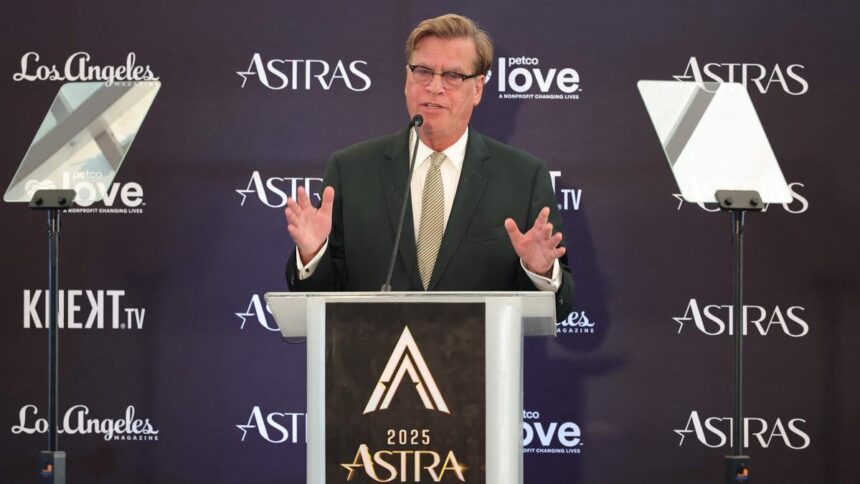
(From left) Jayshree Raveendran, Senthil Kumar, Simran, Revathi, and
CK Ranganthan.
| Photo Credit: SPECIAL ARRANGEMENT
The recently held AbilityFEST2025 India International Disability Film Festival at PVR-INOX Sathyam Cinema, Royapettah, saw festival chairperson Revathy in conversation with Senthil Kumar, co-founder, Qube cinema, about the importance of accessibility in movies.
The conversation was a follow-up to a special audio description screening of the Tamil blockbuster Tourist Family, screened as part of the festival by Qube Cinema.
The audience included students from the National Association for the Blind, Nethrodaya, Karna Vidyalaya, Tamil Nadu Blind Football Association, and Cheshire Home.
The post-screening event discussed the importance of accessibility in Indian cinema with a focus on audio description and closed captioning for individuals with visual and hearing impairments. It also highlighted India’s Right of Persons with Disabilities Act of 2016, which mandates these features for multilingual films starting in September 2024 and for all Indian movies by March 2026.
“The first time we did an audio description was for Taare Zameen Par… a lot of visually impaired people told us that it is nice to watch a film on my own without a friend or a partner telling me what is happening on screen,” said Revathi.
Senthil pointed out that technology can make accessibility features widely available without major theatre modifications. “Theatres are required to reserve about 1-2% of their seats for audio description equipment to be available, but it’s not a limitation because the new technologies have made it so that every seat can be equipped with the audio description or closed captioning.”
For closed captioning and audio description, he explained, “It’s encoded into the DCP (Digital Cinema Package) in such a way that those who want it can have it on the headphones….You can enjoy the audience reactions, the emotions of the people around you, and hear the movie being described in your ear.”
He says that it is something that will enhance the experience of 6-9% of people, “which is just enormous as a number and we have been ignoring that market simply on a commercial basis. It was the wrong thing to do, but finally, at least the law makes sure that everybody gets what their rights are, and it also helps commercially for every filmmaker,” said Senthil.
The discussion also emphasises how technology, like mobile phone apps, can make these accessibility features widely available without extensive theatre modifications. “The technologies that are being adopted today actually have no limitation on the number of people in the audience that can use these devices because they are mobile phone-based; it’s your own personal device that you will bring to the theatre.”
Published – July 09, 2025 03:48 pm IST























